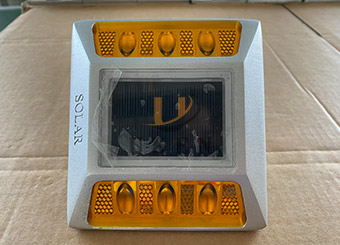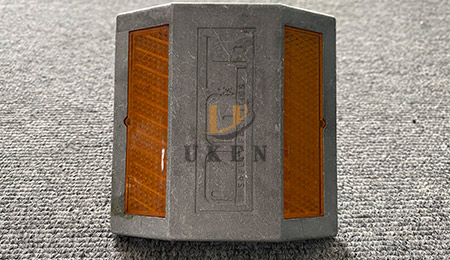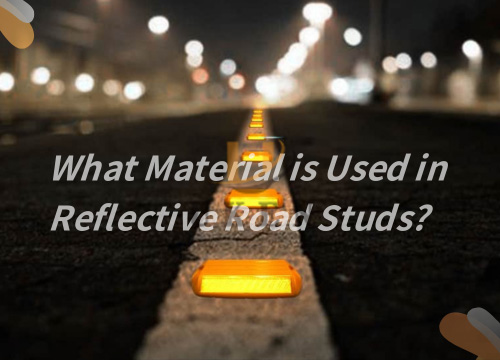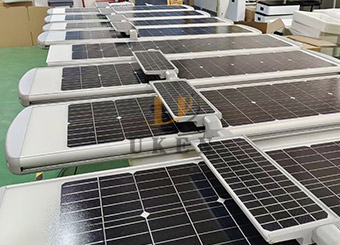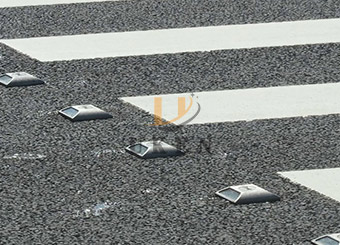Venezuela has a national highway network exceeding 42,000 kilometres, which handles over 70% of the country’s passenger and freight transportation. However, due to economic fluctuations and long-term maintenance deficiencies, approximately 65% of national highways suffer from issues such as road surface damage and faded lane markings. According to statistics from Venezuela’s transportation department, over the past five years, an average of 12,000 traffic accidents occurred annually on national highways, with accidents caused by unclear road signage accounting for as much as 38% of the total. Aging road infrastructure not only threatens public safety but also severely hampers logistics efficiency in industries such as agriculture and mining.
Against this backdrop, reflective road studs, as a cost-effective road safety upgrade solution, are gradually being applied to Venezuela’s national highway network. This article will delve into the application drivers, technical advantages, implementation outcomes, challenges, and solutions of reflective road studs in the local context, providing reference for road safety infrastructure development in developing countries.
Reflective road studs: Utilising glass microspheres or microprism reflective film, they produce a reflective intensity of 200–500 cd/lx/m² when illuminated by vehicle headlights, with a nighttime visibility range of up to 300 metres. Their ABS engineering plastic casing can withstand over 20 tonnes of pressure, making them suitable for standard road sections.
Solar-powered road studs: Integrated with monocrystalline silicon solar panels and lithium batteries, they can operate continuously for 72 hours with an average of 4 hours of sunlight per day. Built-in light sensors automatically adjust brightness, providing active lighting in areas such as curves and tunnels.
Lane Marking Assist Road Studs: Reinforce lane boundaries through a raised design. When used with thermoplastic lane markings, they enhance reflective performance by 40% in rainy nights, effectively preventing vehicles from crossing lane boundaries.
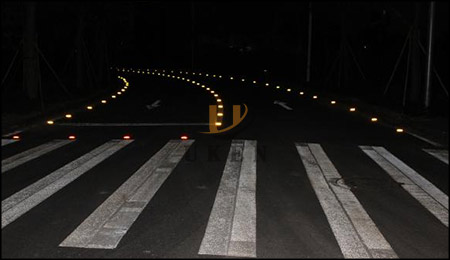
All-weather visibility: In rainy seasons (coastal regions with annual rainfall exceeding 2,000 mm) and foggy Andes mountainous areas, the reflective performance of road studs ensures clear visibility of road contours.
Intelligent guidance system: Solar-powered road studs automatically flash at night,With the curve warning system, reducing driver reaction time by 1.2 seconds.
Accident Prevention: Data from the European Road Safety Agency shows that on sections of road equipped with road studs, lane departure accidents decreased by 67%, and head-on collisions decreased by 43%.
The installation cost of a single road stud is approximately 15–25 USD, which is only one-tenth of the cost of a new streetlight system. Taking a 50-kilometre national highway renovation project as an example, using the road stud solution can save 70% of the initial investment and reduce annual maintenance costs by approximately 60%. This high cost-effectiveness makes it an optimal solution under Venezuela’s current fiscal constraints.
Road studs made from UV-resistant materials maintain structural stability even under the 40°C high temperatures of the Orinoco Plain. Corrosion-resistant road studs used on coastal sections passed a 1,000-hour salt spray test without corrosion. Modular design enables rapid replacement of damaged components, reducing maintenance response times to within 24 hours.
Following full installation, the annual accident rate on national highways is projected to decrease by over 35%, reducing direct economic losses by approximately USD 120 million annually. A safer road environment will also attract logistics companies to establish operations, promoting agricultural export growth and fostering a positive economic cycle.
Based on Venezuela’s road characteristics, deployment will prioritise the following areas:
High-risk curves: 300 sharp curves in the Andes Mountains, using a combination of solar-powered flashing road studs and reflective posts
Intersections: 68 accident-prone intersections around the capital Caracas, installing smart road studs with arrow indicators
Lane separation: The Pan-American Highway section in Venezuela, with road studs installed every 15 metres
Construction adheres to ASTM international standards, with epoxy resin bonding ensuring tensile strength ≥3.5 MPa, and third-party testing achieving a compliance rate of 98.7%.
On National Highway 5 connecting Lake Maracaibo and Valencia, through:
Curve Warning System: Continuous installation of solar-powered road studs, combined with curve reflectors, reducing accident rates by 52% on this section.
Lane Reinforcement Project: Installation of raised road studs in the central median of a four-lane, two-way road, reducing lane-crossing accidents by 71%.
Nighttime Lighting Supplement: In sections without streetlights, solar-powered road studs provide basic lighting, increasing nighttime driving speeds by 18%.
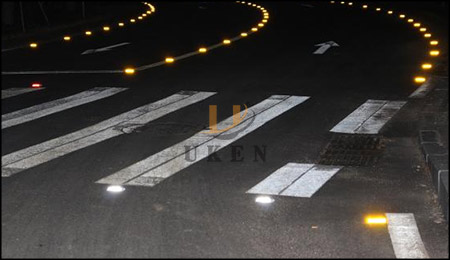
Funding Shortfall: The 2023 road safety budget only covers 30% of renovation needs
Technical Shortcomings: 85% of local highway departments lack experience in maintaining road studs
Vandalism: In some remote sections, the annual damage rate of road studs reaches 20%
Diversified Funding: Securing a World Bank road safety special loan and introducing a PPP model to collaborate with Brazilian infrastructure companies
Capacity Building: Conducting technical training in collaboration with the German TÜV institution, having trained 200 professional maintenance personnel
Protection upgrades: Adopting anti-theft screws + embedded installation, combined with GPS tracking, has reduced vandalism by 65%
On the 120-kilometre pilot section of National Highway 10 connecting Bolívar City and San Fernando:
Accident rates decreased from an annual average of 123 to 45, a reduction of 63.4%
Logistics transportation efficiency improved by 22%, and corporate transportation costs decreased by 15%
Driver satisfaction surveys indicated an 89% increase in nighttime driving safety perception
| index | Before installation (2021) | After installation (2023) | Rate of change |
| Number of accidents per year | 123 cases | 45 cases | -0.634 |
| Number of seriously injured | 78 people | 21 people | -0.731 |
| Economic losses | $18 million | $6.5 million | -0.639 |
The application of reflective road studs on Venezuelan national highways has successfully demonstrated their significant value in enhancing road safety and reducing economic losses. Through scientific selection, standardised construction, and innovative maintenance, they have effectively addressed road safety challenges in the local complex environment. It is recommended that Venezuela expand the application scope of road studs, concurrently advance the development of smart road studs, and integrate vehicle-road collaboration sensors. The international community can contribute to improving road safety standards in Latin America through technical assistance and experience sharing. For more information on successful case studies and technical solutions, please contact professional road safety solution providers.
